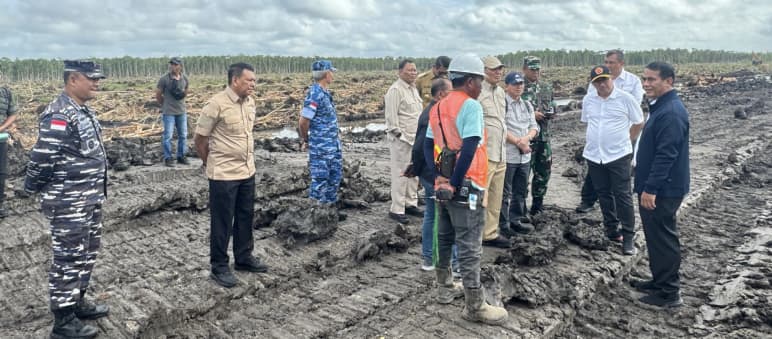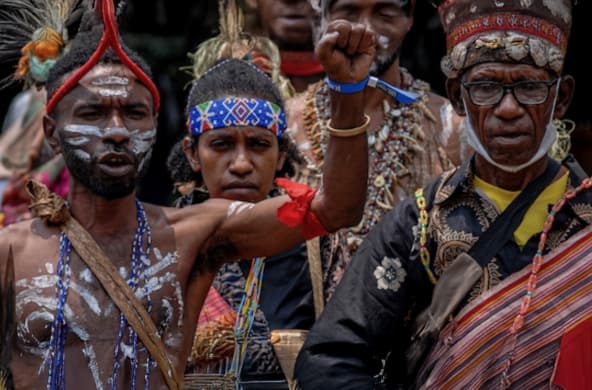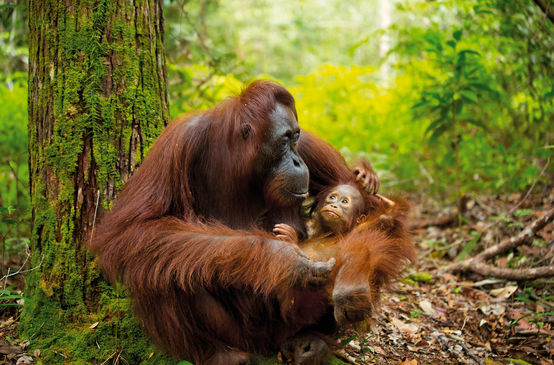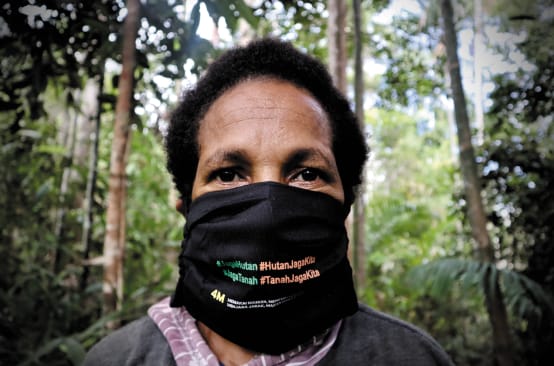
Commission Report: Merauke PSN Sugar and Bioethanol Project Violates Human Rights
The massive agricultural project for the production of sugar, bioethanol and rice, Merauke PSN, is in violation of human rights and destroying the environment in South Papua, as determined in a report by the Indonesian Human Rights Commision KomnasHAM. The report criticizes instances of land theft, lack of consent from Indigenous peoples and the involvement of the military.
From the report of the KomnasHAM Human Rights Commission:
-
Three million hectares of sugar cane and rice plantations in the district of Merauke, South Papua, are clearing biodiverse forests and threatening the livelihoods of the Indigenous peoples, violating international standards for land rights, food security and a healthy environment in the process.
-
Five basic rights guaranteed by Indonesian law and international standards are explicitly mentioned: to land, the environment, food, involvement in decision-making and security.
-
KomnasHAM recommends the recognition of Indigenous land rights and their fair participation.
Franky Samperante, Director of our partner organization Pusaka, shares the findings and assessments of KomnasHAM: "The report confirms the potential for human rights violations-from the laws and policies that are enforced without consultation or consent of local communities, to the potential impact on their way of life."
He doubts that the Indonesian government will heed the recommendations of KomnasHAM and even more so the appeals of non-governmental organizations. The government is acting only in the interests of investors, focusing on large-scale projects and ignoring the rights of the Indigenous peoples.
Civil society is calling for a complete halt to the project and the withdrawal of the military.
KomnasHAM initiated the investigation after the four Papuan peoples Marind, Maklew, Khimaima and Yei filed complaints in 2024. According to international standards, projects such as this must obtain the free, prior and informed consent (FPIC) from Indigenous peoples in their territories before they can start. But this never happened. On the contrary, the Papuan communities strictly oppose the clearing of their forests.
The deployment of additional military units in South Papua is also spreading fear. On 10 November 2024, another 2,000 soldiers arrived in Merauke to support and provide security for the project.
This huge agricultural project threatens Merauke's biodiverse forests and the ecological balance, KomnasHAM notes.
Human rights, rainforest, climate and biodiversity under threat
KomnasHAM concludes that the PSN Merauke contradicts several national laws that include the protection of Indigenous rights. Furthermore, the project violates international human rights and environmental standards. Although Indonesia has not ratified the International Labor Organization Convention ILO 169, its principles of self-determination and FPIC serve as a benchmark.
Last but not least, the massive deforestation in Merauke contradicts Indonesia's commitments to protect forests, biodiversity, the climate and Indigenous rights.
KomnasHAM identifies five human rights violations
-
Rights to land and indigenous territories, guaranteed in the Indonesian constitution;
-
Right to a healthy environment, enshrined in the constitution and in the Environmental Protection Act;
-
Right to food security, guaranteed in the constitution and food law;
-
Right to participate in decision-making, enshrined in the Land Allocation Act;
-
Right to security, as the strong presence of the military heightens the fear of intimidation or violence, causing psychological distress.
KomnasHAM recommends
-
A legally viable and transparent mapping of Indigenous territories must be carried out to prevent unauthorized land grabbing and ensure the legal recognition of communities' land rights.
-
The government should recognize Indigenous rights to land and territories.
-
The government should ensure that projects on Indigenous land offer the communities fair advantages and promote sustainable development.
-
The government should review the granting of permits and concessions on Indigenous land and prioritize the interests of Indigenous communities.
The Commission's recommendations are not legally binding.
Civil society demands: End PSN Merauke!
For Indonesian environmental and human rights defenders, the recommendations are clear, but by no means enough. The threat of deforestation and the destruction of Indigenous cultures is too great.
Land theft and environmental destruction have already begun in Merauke. Therefore, the Indigenous people must now be compensated and the deforested areas reforested.
PSN Merauke must be terminated immediately! The military must leave!
This page is available in the following languages:

Indonesia: Stop the destruction of Papua’s Marind forest!
Indonesia is implementing a sugar and ethanol program in southern Papua under military protection. Two million hectares of rainforest and Indigenous land are at risk.

Defending rainforests in Southeast Asia
The forests of Southeast Asia are the last refuge and habitat of orangutans, Sumatran tigers, birds of paradise and Komodo dragons.

Saving the rainforest of southern Papua and empowering Indigenous Papuans
The rainforests in Papua are experiencing an unprecedented onslaught of timber, palm oil and mining companies. Land grabbing and clear cutting are rife. Indigenous Papuans are losing their livelihoods as the forest disappears. The environmental and human rights organization Pusaka is mounting a defense against environmental destruction and land grabbing.